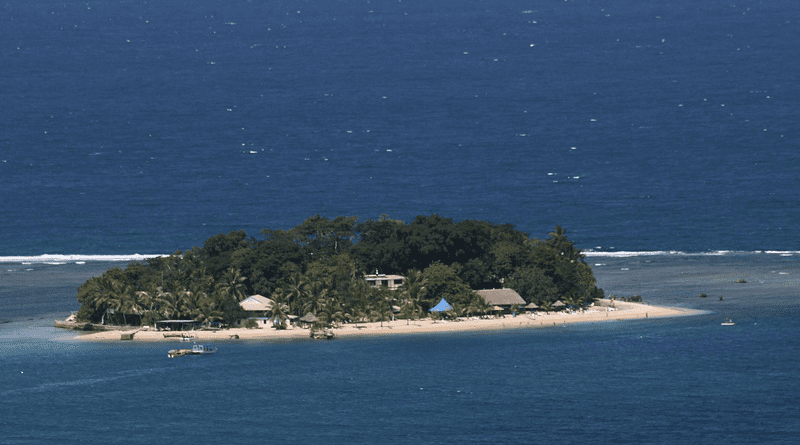Pacific Climate Leaders Caution Media Against ‘Drowning Islands’ Narrative
At the East-West Center International Media Conference last week, speakers from the Pacific Islands who are involved in climate change issues took Western media to task for maintaining a “drowning islands” narrative that they say dominates stories on global warming in the region and diminishes efforts to fight and adapt to the environmental crisis.
In a keynote address, former Marshall Islands President Hilda Heine said the news media have sharpened the public’s understanding of climate change. However, she cautioned against repeated negative focus on environmental impacts that can “leave the public with an overall sense of powerlessness,” paralyzing people into inaction.
Narrow framing
A similar theme was struck by climate researchers and Pacific Islands advocates during a conference discussion on shaping a new climate change message.
Victoria Keener, senior research fellow at the East-West Center and the discussion’s moderator, said the dominant narrative of coverage casts the islands as passive and vulnerable, and the reporting is “framed in colonialism and paternalistic themes.”
Tammy Tabe, Oceania research fellow at the East-West Center from the Solomon Islands, said she has encountered media covering environmental impacts in low-lying islands who will visit areas of coastal erosion but not other locations where examples of adaptation and resilience are underway. “The media has that control over what’s magnified in terms of vulnerability in Pacific Island countries, and it often displaces acts of daily resilience,” she said.
Brianna Fruean, a 23-year-old Sāmoan climate activist whose speech at the 2021 COP26 United Nations climate summit in Glasgow drew global attention, is frequently interviewed by the press. But she said she is more often asked to describe the impacts of climate change rather than highlight young Pacific Islanders’ efforts to do something about them. “I feel like a lot of the times the media don’t let us be heroes,” Fruean said.
Elevating local voices
Heine reflected on the challenge Pacific Islands peoples face in primarily relying on outsiders to tell their stories, whether about climate change or the dynamics between China and Western powers in the region. “The Anglo ways and China are often the only two sides which matter to the mainstream media and political discourse,” she said. “The third side, the Pacific’s ʻbig-ocean states,ʻ or BOSS, are often forgotten or relegated to the margin.”
One effort to inject more local perspectives into the media is the recent creation of the nonprofit Pacific Media Institute, she said, which among other goals seeks to train Marshall Islanders as effective media communicators. With this and other initiatives, Heine said she hopes “we no longer have to rely entirely on the good graces of others to tell our own stories about climate change and a host of other issues.”

